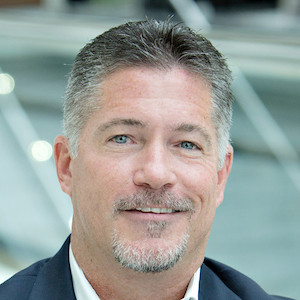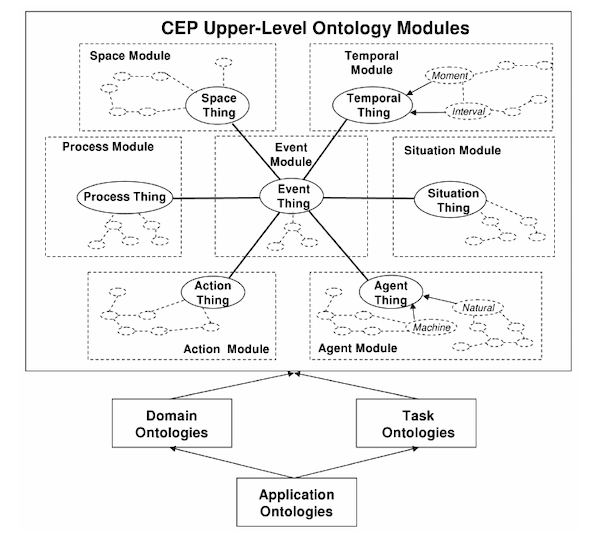QUANTUM RISK - A Geek's Guide to the World of Risk
 Curtis BartellEvery once in a while, someone adds clarifying or new thoughts to an old practice, understanding, or belief. That's why authors and teachers are so plentiful because one can write about the same things using different words, vantage points, or exploratory insights and ideas…the endless beauty of the human experience and depths of cranial imagination. In this context, let me refer you to Mr. Tony Fish and his recent article "Quantum Risk: a wicked problem that emerges at the boundaries of our data dependency".
Curtis BartellEvery once in a while, someone adds clarifying or new thoughts to an old practice, understanding, or belief. That's why authors and teachers are so plentiful because one can write about the same things using different words, vantage points, or exploratory insights and ideas…the endless beauty of the human experience and depths of cranial imagination. In this context, let me refer you to Mr. Tony Fish and his recent article "Quantum Risk: a wicked problem that emerges at the boundaries of our data dependency".
To borrow from a modern day philosopher Forest Gump: I may not be a smart man, but I know what brilliance is. Mr. Fish in my view seems to have quite aptly inserted himself in a discussion between Hawking, Chesterton, Plato, and Aquinas. His article is packed with risk goodness and an expanding universe of understanding risk. In business or government, we are so numb to incessant risk speak and are unfortunately numbing to resilience. Seems we know everything already. Not true.
Fish brings an excitingly fresh perspective on risk…or, maybe he's speaking the truth we all knew all along but hadn't yet expressed or taken the time to assemble in our minds. As my colleagues and I have said for quite some time, risk is complex, but not complicated.
Quantum Risk is different and harkens to my personal deep appreciation and affinity for physics having sat at the feet of some of our nation's most amazing nuclear weapon scientists early in my career. He had me at Quantum. He says, "Quantum risk is new, big, ugly, and already here, it's just that we are willingly blind to it."
Risk-Risk-Risk these days is a lot like Marsha-Marsha-Marsha of yesteryear. As a daily practitioner, business owner, advisor, academic, and believer in risk management across our lives, I know all too well the difficulty in energizing or invigorating enthusiasm in a very important cornerstone in our businesses. We have found kindred thinkers when we demonstrate just how effective proper risk management can be as a business discriminator…and add efficiencies to limited resources in operational priorities. Fish says more succinctly, "Quite frankly, we see risk as the prime reason to stop something and occasionally manage it closer but never to understand something better." Seems so simple. He just explained the difference between compliance-based risk management vs. practical operations-based risk management. Or, as Stephen Covey insisted as his 5th Habit, seek to understand, then be understood. Yes, we are allowed to ask why, a lost art these days.
Fish continues "Quantum Risk is New….:
- When you observe the same risk twice, it might not be there, and it will look different.
- The same risk can be in many places simultaneously, but it is only one risk.
- Your risk and my risk directly affect each other across our data ecosystem; they are coupled but may not be directly connected."
Whoa, quantum risk is not just big and ugly but it's all around us! Fish posits, "How is it possible for unidentified risks to exist? …there is no new unknown risk; however, what is known to someone may not be known by everyone. Risk is hiding in plain sight…we are increasingly dependent on others managing their risk to the same level we manage risk and share data across the ecosystem. This is where Quantum Risk arises, at the boundaries, in the long-tail of the universe of risk." If you are a risk or resilience geek like I am, then maybe your mind is blown too.
 Now, on to Ontology and Epistemology for a means to quantify data defining risk. "…Such a structure ((sic) grouping categories into one's world view/perspective) is called ontology (how we view the world) and is related to epistemology (how do we know what is true and how we have gone about investigating/ proving it?)." He continues, "At this point you would have thought with 5,000 years of thinking about this we would have one top-level ontology from which everything would flow. Alas, we don't have one for anything. There is no black and white agreed way to look at anything in philosophy, physics, biology, humanities, data, climate, language, sound, knowledge, computers, behavior, and every other topic. This means that it is safe to assume your way of describing your world, in your organization, through data is different from everyone else in your ecosystem."
Now, on to Ontology and Epistemology for a means to quantify data defining risk. "…Such a structure ((sic) grouping categories into one's world view/perspective) is called ontology (how we view the world) and is related to epistemology (how do we know what is true and how we have gone about investigating/ proving it?)." He continues, "At this point you would have thought with 5,000 years of thinking about this we would have one top-level ontology from which everything would flow. Alas, we don't have one for anything. There is no black and white agreed way to look at anything in philosophy, physics, biology, humanities, data, climate, language, sound, knowledge, computers, behavior, and every other topic. This means that it is safe to assume your way of describing your world, in your organization, through data is different from everyone else in your ecosystem."
It's interesting to note his list includes topics where absolutes exist (e.g., physics, computing) yet there are still perspectives to be applied. So now what? How do you convey your world view/perspective in a way that recognizes absolutes, manages risks, provides a viable market discriminator, or makes your government's activities resilient with so many differing priorities? Or, how do you convey your understanding. In my narrow place in the world, my business has seen where ESG, People, National/Homeland Security, Profit, Politics, Competition, Climate, Culture, Compliance, Safety, Security, etc. all race to the front of the line in decision making depending on the priority of the day…or, as I would now call this phenomenon: "windsock epistemology."
Mr. Fish offers a graphic depiction of this to simplify how "thing one, thing two, thing three, thing four…" factor together in Quantum Risk calculus (see above). In the end, this simplified graphic picks apart a highly complex thought process and pieces together various ontologies towards a desired outcome. Let me add, I don't know Mr. Fish (he is a friend of a friend) or I would make a more direct Dr. Seuss correlation between his name, the various things, and the culturally suspect author. But, I think my point is clear now.
In the end, Mr. Fish lays out a challenge: are you going to stay in your comfortable little world of willing blindness of risk or are you going to expand your view to more maturely grapple with the big, ugly, long, tail of the Quantum Risk dragon lurking around the edges of the risk universe. Maybe some ontological and epistemological risk soul searching will help you see that the dragon may merely be a grasshopper.
About the Author
Curtis Bartell is the Founder and Chief Executive Officer of Covenant Park Integrated Initiatives, Inc., a small consulting firm in Fairfax, Virginia. He is also owner of Covenant Park Preparedness Systems Integration, LLC. Both firms provide some of our nation's thought leadership on and practitioners of organizational continuity and resilience and are leading new markets as an end-to-end preparedness systems integrator. Covenant Park provides comprehensive, integrated preparedness planning and capabilities for clients which includes support to multiple global commercial corporations and national level federal organizations. Mr. Bartell served as a past President of the Mid-Atlantic Disaster Recovery Association (MADRA), a regional network of resilience professionals. Mr. Bartell has served on multiple, interagency national and international level policy and planning organizations during his 20 years in the federal government and over 15 years in the private sector. More info...
- Tags:
- compliance-based risk management
- Covenant Park Integrated Initiatives
- Covenant Park Preparedness Systems Integration
- Curtis Bartell
- data dependency
- data ecosystem
- Dr. Seuss
- epistemology
- Forest Gump
- Ontology
- practical operations-based risk management
- quantify data defining risk
- Quantum Risk
- Quantum Risk calculus
- Stephen Covey
- Tony Fish
- windsock epistemology
- Login to post comments